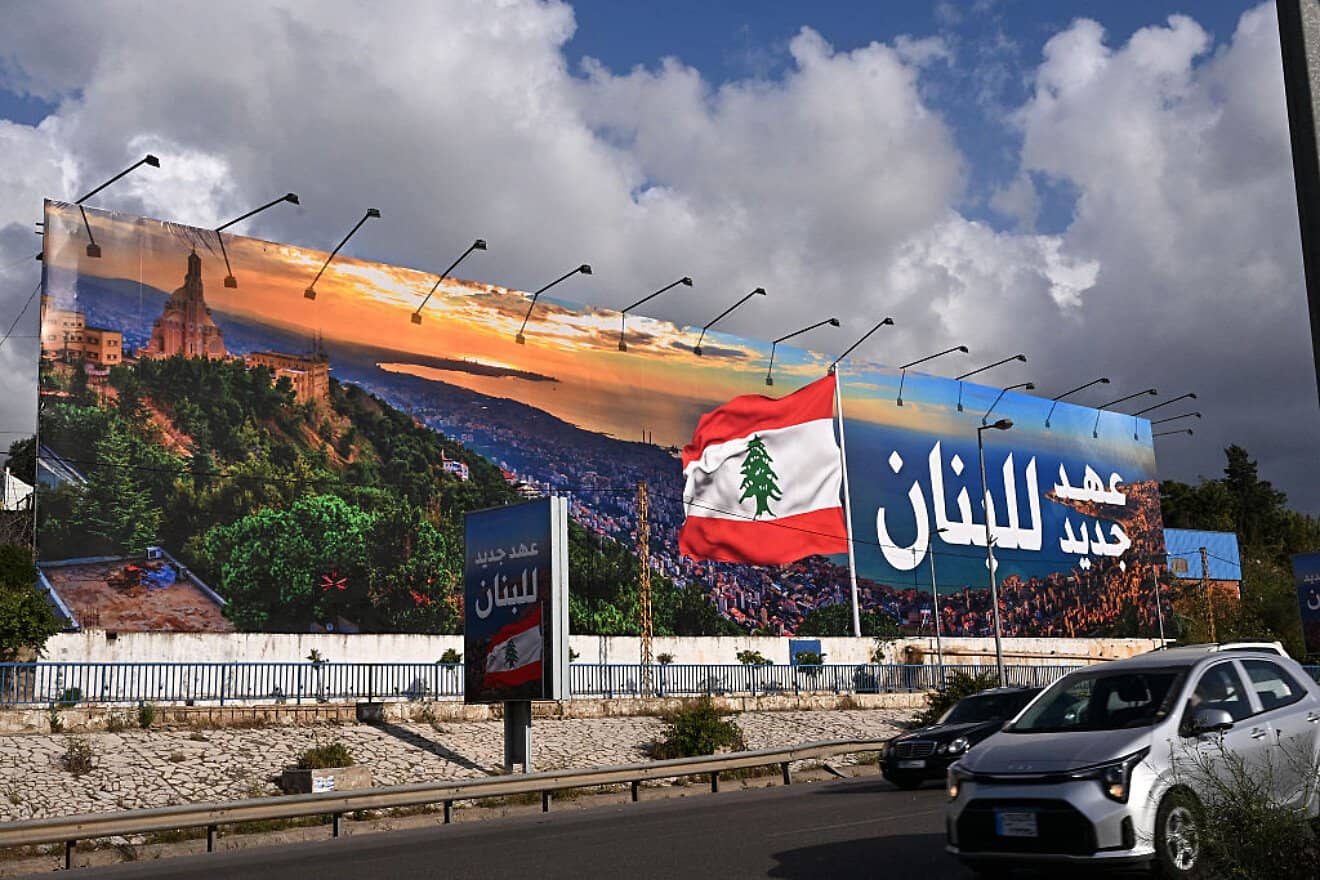by David Isaac
The move follows a meeting of 30 governments, including the United States, to counter the terror organization's illicit activities.
 |
Commuters drive past a newly installed billboard
bearing the image of a Lebanese flag and a statement that reads in
Arabic "Lebanon a new era," replacing a Hezbollah billboard, on the road
leading to Beirut's Rafic Hariri International Airport on April 10,
2025. Photo by Joseph Eid/AFP via Getty Images. |
Lebanon’s central bank has barred banks and financial institutions from conducting transactions with Al-Qard Al-Hassan, a financial entity linked to the Hezbollah terror organization, according to a circular dated July 14, Reuters reported on Tuesday.
The decision reflects Hezbollah’s relative weakness following its battering by Israel last fall and comes on the heels of sanctions put into place earlier this month by the U.S. Treasury Department targeting seven Hezbollah operatives for their roles at the bank.
Al-Qard Al-Hassan, founded in the early 1980s, has been described as the financial backbone of Hezbollah’s state-within-a-state in Lebanon. Hezbollah leader Hassan Nasrallah, who was killed in an Israeli strike on Sept. 27, 2024, had been the bank’s chief decision-maker.
The institution reportedly serves around 300,000 people.
The U.S. Treasury sanctioned Al-Qard Al-Hassan in 2007, describing it at the time as “the financial backbone of Hezbollah, Hamas, [and] PIJ [Palestinian Islamic Jihad].”
Saudi Arabia designated the bank as a terrorist entity in 2021. Israel followed suit in October, adding it to its list of terrorist organizations and targeting several of its branches in airstrikes that same month.
“It is a very good thing that the Lebanese Central Bank is acting against Al-Qard Al-Hassan,” Haig Melkessetian, a former intelligence operative for the U.S. Defense and State Departments who has investigated Lebanese banks and their ties to terror financing, told JNS.
‘The obstacle to banking reforms’
Lebanon’s move was likely prompted by a major conference of the Law Enforcement Coordination Group (LECG), held from July 9-10 and attended by representatives from about 30 countries, Melkessetian said. The LECG was established by the United States and Europol in 2014 to strengthen international coordination against Hezbollah.
The group warned that Hezbollah’s “shaky financial state” is likely to drive increased fundraising efforts in the Western Hemisphere, Africa, and other regions. A U.S. State Department press release noted that participants highlighted recent government actions aimed at “countering Hezbollah’s financial mechanisms and criminal schemes.”
Melkessetian emphasized that further action is needed, pointing to Lebanese Parliament Speaker Nabih Berri, who has held the post since 1992, as the next key figure to target for sanctions. He described Berri as “the last remnant” of the entrenched corruption that Lebanon now appears intent on leaving behind.
“To really cut off the Hezbollah financing network, the U.S. Treasury needs to sanction Berri. He is the obstacle to banking reforms in Lebanon,” Melkessetian said.
Berri presents himself as a friend to the United States and Europe, but he is allegedly trying to obstruct Lebanon’s efforts to address fiscal corruption by placing his allies in key positions at the central bank. Melkessetian said that Berri aims to undermine reform initiatives by the bank’s new governor, Karim Souaid, who was appointed in March.
“He wants to put his own guys in so they can cover for what he did wrong for years. It’s like the mafia putting a corrupt cop in charge of an FBI investigation,” Melkessetian said.
Melkessetian added that other institutions also need to be sanctioned, specifically highlighting the Middle East & Africa Bank (MEAB). As the 15th largest bank by deposits in Lebanon, MEAB has managed to slip through the cracks of enforcement.
Melkessetian said that MEAB played a crucial role in helping Al-Qard Al-Hassan evade sanctions, as the latter is not directly connected to the international banking system. MEAB, along with other institutions, provided indirect access to the system for Al-Qard Al-Hassan.
David Isaac
Source: https://www.jns.org/beirut-bans-all-financial-dealings-with-hezbollah-bank/
No comments:
Post a Comment